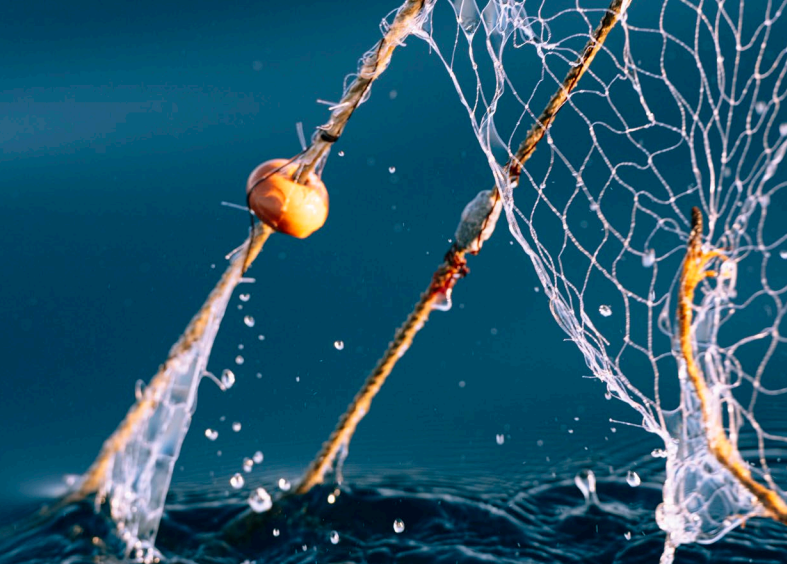SOPERKA, a Senegalese fishing company, in a joint venture with the Spanish company Grupo Pereira, wished to react to our article “Experimental fishing or experimental pillaging in Liberia?” Mr Kandji, Managing Director, Mr Serrano, from the company Pereira, adviser to SOPERKA for its fishing operations, and Mr Perez Bouzada, a lawyer, who defends the interests of the company Pereira, expressed their views on a series of issues raised in the article.
Senegal and Liberia will conduct joint fisheries research to evaluate Liberia fisheries viability. For Liberia ‘carabineros’, this may come too late
Sponsored by the World Bank, as part of their Liberia Sustainable Management of Fisheries project worth 40 million euros, this research campaign will take advantage of the CRODT research vessel, the ITAF DEME, launched in 2021 with the EU-Senegal Sustainable Fisheries Partnership Agreement (SFPA) sectoral support.
West Africa: PESCAO should be more effective and attentive to artisanal fisheries
The PESCAO programme for the improvement of fisheries governance in West Africa, financed by the EU from the 11th EDF Regional funds, started in June 2017 and will end in June 2024. After nearly 4 years, an evaluation is underway to assess the results obtained and to see how to improve its implementation, in a context where the countries of the ECOWAS region are focusing on the development of a blue economy strategy.
EU-Mauritania SFPA: The requests of the Mauritanian artisanal fisheries and civil society
This week the European Parliament is discussing a first draft by rapporteur Izaskun Bilbao on the Sustainable Fisheries Partnership Agreement between the European Union and Mauritania. This agreement is of great interest to the EU fisheries sector and is the most expensive of all fisheries agreements between the EU and third countries.
Experimental fishing or experimental pillaging in Liberia?
Transparency: Mauritania improves its score, but is still far from the goal
"The rich man's fish feeds on the poor man's sardinella"*
In this article, the author extracts from the recent report ‘Feeding a monster: How European aquaculture and animal feed industries are stealing food from West African communities’ the main findings related to the European Union and its Members States, and looks at how some of the recommendations may be implemented in the EU.
EU-Madagascar SFPA negotiations resume: Key issues for the future of small-scale fisheries in Madagascar
Seychelles FITI report: Stakeholders make recommendations regarding access by fleets of foreign origin
Seychelles is the first country in the world to publish a report that assesses the compliance against the transparency requirements of the FiTI standard. The author comments on the main findings of the Multi Stakeholder Group and highlights the recommendations for foreign fleets and the importance of understanding the value of local fisheries.
African artisanal fisheries at the forefront of the fight against predatory and opaque industrial fishing companies
Cameroon IUU yellow card: The EU should also sanction European companies hiding behind this country’s flag
What future for Sustainable Fisheries Partnership Agreements?
In view of the global evaluation of the Sustainable Fisheries Partnership Agreements (SFPAs) that will be carried out by the Commission in 2021, the author highlights the key points which will need to be assessed from the perspective of the impacts on African coastal communities. The author also suggests essential improvements to be made for the future of SFPAs so that they better respond to the needs of these communities.
Improving scientific observer coverage in mixed Fisheries Agreements in West Africa
BirdLife Europe and Central Asia, CFFA and WWF release a joint paper with recommendations to harmonize the conditions for the embarkment of scientific observers on board EU vessels and ask that data collection include more specifications on the biological information required, including information on bycatch species.
Small scale fisheries at risk: Madagascar signs destructive fishing agreements with Chinese investors
Sustainable Fisheries Partnership Agreement negotiations between the EU and Mauritania: staying on course
As a new round of negotiations between the EU and Mauritania is expected to start soon, this position paper recalls the demands of the Mauritanian artisanal fisheries sector, highlighting technical conditions, such as the access to octopus to be reserved for local artisanal fishers, the zoning for trawlers to be maintained, and landings of small pelagics to be kept. Governance issues are also key, such as transparency, especially regarding the activities of other foreign fleets; and the urgent need for the SFPA to contribute to regional management for shared stocks.
Making Sustainable Fisheries Partnership Agreements’ evaluations more efficient
BirdLife Europe and Central Asia, CFFA and WWF publish a joint paper with recommendations to improve the process and the content of evaluations by including the assessment of impacts of the EU fleet on ecosystems, of the transparency and non-discrimination clause, the needs of women, the implementation of the social clause and the contribution to SDGs.
Why the current African Union’s blue economy strategy threatens small-scale fisheries
Investment and transparency in EU-Africa fisheries relations: what about joint ventures?
In this joint position, CAOPA and CFFA request that, in the framework of the future EU–Africa partnership, which focuses on sustainable investments and the promotion of good governance in fisheries, a set of principles be defined to ensure that fisheries joint ventures operate in a transparent manner, do not compete with local artisanal fisheries, and are in line with the objectives of sustainable fisheries development in the third country concerned.
Issues for local artisanal communities in a potential future EU-Guinea SFPA
How large is the Chinese Distant Water Fishing fleet?
The latest ODI report presents the scale of the Chinese flagged, owned and/or operated DWF fleet and highlights the gaps and challenges in China’s governance capacity, but the methodology and the figures need to be taken with a pinch of salt. Using specific examples, CFFA reviews the key findings and implications for the West Africa region.




















